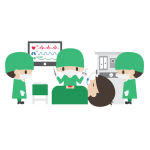When I used to work at the Accident & Emergency Department of my district, I encountered many patients with acute pancreatitis. This medical mnemonic greatly helped me while assessing such patients who most commonly presented with epigastric pain radiating to the back. Allow me to introduce the mnemonic “I GET SMASHED,” a concise and comprehensive mnemonic that serves as a diagnostic tool in uncovering the causes of pancreatitis. Through this mnemonic, we encapsulate a wide spectrum of contributing causes and risk factors that can be quickly memorized to be recalled during routine patient encounters, hospital ward rounds, or med-school exams. This mnemonic not only serves as a high-yield memory aid but also streamlines our clinical approach, ensuring we promptly identify the underlying triggers of pancreatitis and tailor our interventions accordingly.
In the realm of diagnostic precision, the “I GET SMASHED” mnemonic stands as a beacon for medical professionals grappling with real-life pancreatitis patients. By encompassing a diverse range of causative factors, this mnemonic offers a systematic framework to identify potential etiologies, allowing healthcare professionals for efficient diagnostic reasoning.
Each component of this mnemonic, from gallstones to drug-induced inflammation or chronic alcoholism, aligns with well-documented pathways that can precipitate acute pancreatitis. As we employ the “I GET SMASHED” mnemonic, we as doctors, not only enhance our diagnostic prowess but also contribute to timely intervention and improved patient outcomes, solidifying our commitment to delivering comprehensive and effective treatment to our patients.
We, here at the Medicos Republic, hope that you find this medical mnemonic useful in memorizing the Causes of Pancreatitis Mnemonic. 🙂
Causes of Pancreatitis Mnemonic
| Mnemonic Component | Cause |
|---|---|
| I | Idiopathic |
| G | Gallstones/Genetic |
| E | Ethanol (chronic alcoholism) |
| T | Trauma |
| S | Steroids |
| M | Mumps |
| A | Autoimmune |
| S | Scorpion sting |
| H | Hyperlipidemia/Hypercalcemia |
| E | ERCP Procedure |
| D | Drugs (such as azathioprine, thiazides, sulfonamides, furosemide, estrogens, and tetracycline) |
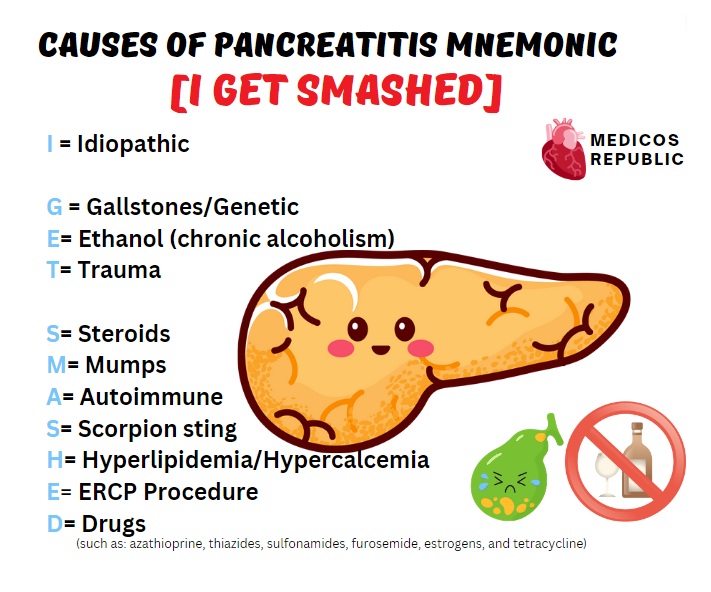
Happy learning, folks!

![Causes of Pancreatitis Mnemonic [I GET SMASHED] 1 Causes of Pancreatitis Mnemonic](https://www.medicosrepublic.com/wp-content/uploads/2023/08/Causes-of-Pancreatitis-Mnemonic-I-GET-SMASHED-1-696x391.jpg)

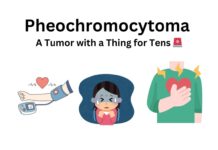
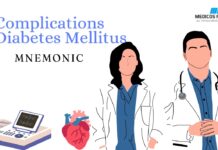
![Carcinoid Syndrome Mnemonic [Easy-to-memorize] Carcinoid Syndrome Mnemonic](https://www.medicosrepublic.com/wp-content/uploads/2024/08/Carcinoid-Syndrome-Mnemonic-Easy-to-memorize-218x150.jpg)
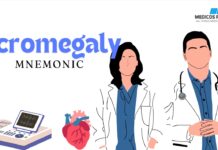
![Stages of Neurocysticercosis Mnemonic [Vegans Can’t Get Neurocysticercosis] Stages of Neurocysticercosis Mnemonic](https://www.medicosrepublic.com/wp-content/uploads/2023/08/Stages-of-Neurocysticercosis-Mnemonic-Vegans-Cant-Get-Neurocysticercosis-1-218x150.jpg)
![Rugby For Dummies PDF Free Download [Direct Link] Rugby For Dummies PDF](https://www.medicosrepublic.com/wp-content/uploads/2023/04/Rugby-For-Dummies-PDF-Free-D-150x150.jpg)
![JVP Waveform Mnemonic [ASK ME] – Rapid Memorization JVP Waveform Mnemonic](https://www.medicosrepublic.com/wp-content/uploads/2023/08/JVP-Waveform-Mnemonic-ASK-ME-150x150.jpg)

![Dance Anatomy 2nd Edition PDF Free Download [Direct Link] Dance Anatomy 2nd Edition PDF](https://www.medicosrepublic.com/wp-content/uploads/2018/12/Dance-Anatomy-2nd-Edition-PDF-Free-Download-Free-Download-150x150.jpg)
![Embryology at a Glance 2nd Edition PDF Free Download [Direct Link] Embryology at a Glance 2nd Edition PDF](https://www.medicosrepublic.com/wp-content/uploads/2019/03/Embryology-at-a-Glance-2nd-Edition-PDF-Free-Download-150x150.jpg)
![Diseases Caused by Staphylococcus Aureus Mnemonic [SOFT PAIN]](https://www.medicosrepublic.com/wp-content/uploads/2023/08/Diseases-Caused-by-Staphylococcus-Aureus-Mnemonic-SOFT-PAIN-1-150x150.jpg)
![Flowers for Algernon PDF Free Download [Direct Link] Flowers for Algernon PDF](https://www.medicosrepublic.com/wp-content/uploads/2023/05/Flowers-for-Algernon-150x150.jpg)
![Rapid Interpretation of EKG’s PDF Free Download [Direct Link] Rapid Interpretation of EKG’s PDF](https://www.medicosrepublic.com/wp-content/uploads/2022/05/Rapid-Interpretation-of-EKG’s-PDF-Free-Download--150x150.jpg)
![Lange Q&A USMLE Step 1 6th Edition PDF Free Download [Direct Link]](https://www.medicosrepublic.com/wp-content/uploads/2018/12/Lange-QA-USMLE-Step-1-6th-Edition-PDF-Free-Download-150x150.jpg)
![Clinical Methods in Medicine: Clinical Skills and Practices 2nd Edition PDF Free Download [Direct Link] Clinical Methods in Medicine: Clinical Skills and Practices 2nd Edition PDF](https://www.medicosrepublic.com/wp-content/uploads/2018/11/Clinical-Methods-in-Medicine-Clinical-Skills-and-Practices-2nd-Edition-PDF-Free-Download-150x150.jpg)
